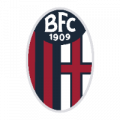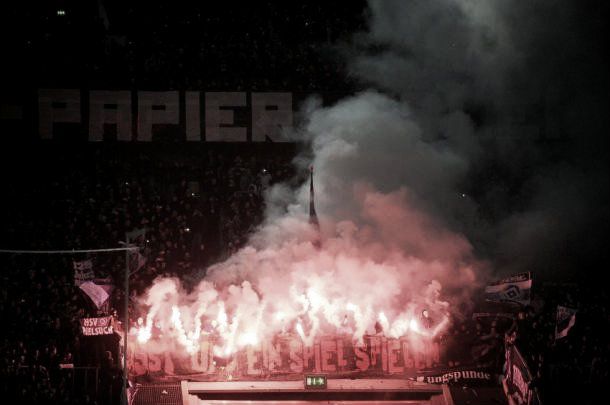In these last days, many clubs in Bundesliga, 2. Bundesliga, and also smaller clubs from regional divisions were fined a substantial amount following the fan’s illegal use of pyrotechnics.
1. FC Köln had a section of their stand closed, following an incident at the final whistle in the Rheinderby, against Borussia Mönchengladbach earlier in the season. Whilst Hamburger SV and Hertha Berlin have been fined in the past, for failing to control their fans.
Is it a serious problem in Germany?
There might be a serious problem when looking at the number of fines the Deutsche Fußball-Liga (DFL) has imposed in the last weeks. But this high amount of punishments can be explained in a fairly simple way: in that it is common that the DFL will wait until the end of the season to sentence the wrongdoing of some of the fans. Therefore, it might seem like a flood of incidents in German football, but this is not the case.
It’s hard to decide whether the incidents in Germany when football fans use pyrotechnics are 'often', because they tend to be used in a different manner.
Compared to other fan scenes, from Italy, to Serbia or Turkey, German football fans use their pyrotechnics as a form of art, rather than violence. Reports suggest that there's around just one incident per match day, significantly lower than other leagues.
A conflict between fans and DFL
The reason why it doesn’t stop despite the consequent fines is the handling of the DFL, which is reckless in the eyes of many football fans. In the past season, the DFL has started to punish players who raise their shirt (not undress) to show a (sometimes political) message.
In many scenes in Germany exists a fan chant saying: “Pyrotechnik ist kein Verbrechen”, analogously translated as: “the use of pyrotechnics is not a crime”.
Another reason for the discontent and incomprehension concerning the actions of the DFL is the fact that controlled use of pyrotechnics is legal is some countries.
In conclusion, there isn’t a serious problem with hooliganism as it is very rare that “typical” hooligan actions, such as street fights or massive pyro shows take place. It is rather that the German fans are very active as many choreographies are organised to support the teams, in an approving manner.










































